
Not quite. Here's a thread on the central position of "prosperity doctrine" in Alberta conservatism. #ableg 
https://twitter.com/IanKing/status/1321091617378488320

While those with a stronger sense of faith tend to be conservative, not all Alberta conservatives are Christians a smaller number yet could be considered highly religious.
Yet, it is a strain of Protestant Evangelism that has left an indelible mark on Alberta conservatism. 

Dating back to the early twentieth century -- when Bible Bill Aberhart and Ernest Manning married conservative approaches to economics, politics, and religion into the Social Credit movement -- Alberta conservatism has aligned itself with the "prosperity" doctrine or tradition. 
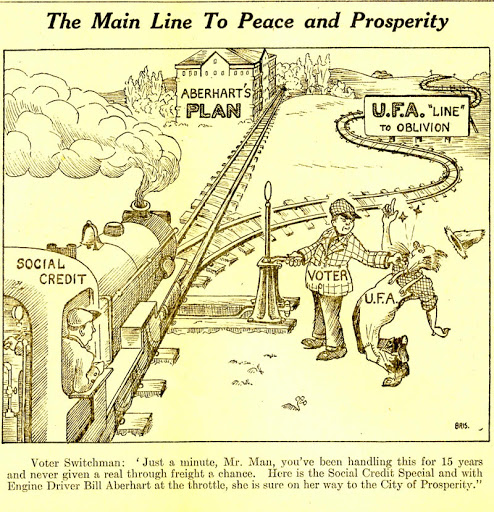
Simply put, the mantra ties hard work and personal wealth to personal virtue and the will of God. (On the flipside, a lack of wealth is associated with lack of personal effort or worth). 

In political terms, this translates into a reverence for capitalism and the accumulation of wealth and personal accountability that underpin it. 

Aberhart and Manning tapped into the anti-establishment, sectarian sentiment against mainline churches as well, pitting populist Albertans against the “Big Shots” found among Central Canadian religious, political, and economic elites. 
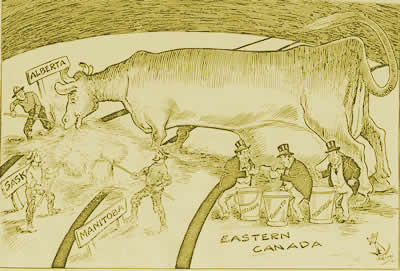
During and since the Cold War, the prosperity gospel’s faith in capitalism has morphed into anti-socialism and an insistence on individual freedom from government overreach. 

Popular conflation of wealth and prosperity with greed has tempered people’s willingness to publicly espouse the prosperity doctrine. This is particularly true since the very public fall of several televangelists in the 1980s and 1990s. 

Yet, it's no accident that the term "prosperity" remains a dog-whistle to those earlier conservative conceptions of “good = wealth” and “hard work” leads to the “good life” (i.e., the “American dream”). 
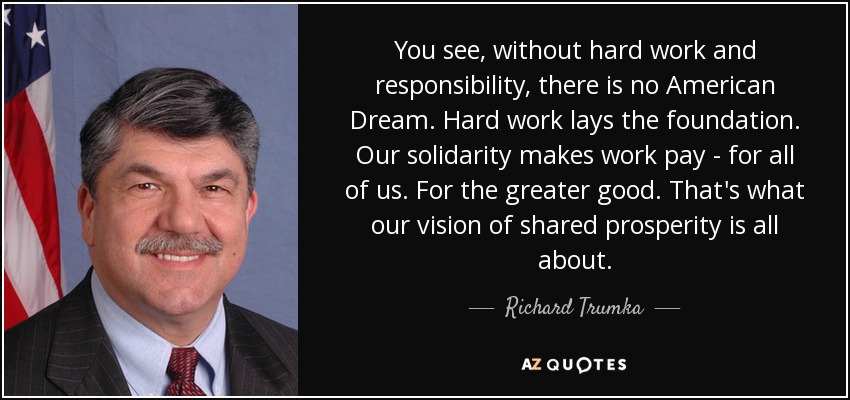
Social Credit's "prosperity certificates" in the 1930s were echoed in Klein's "Prosperity Bonuses" in 2005. Both referred to the notion that Albertans had "earned" the wealth they enjoyed. 
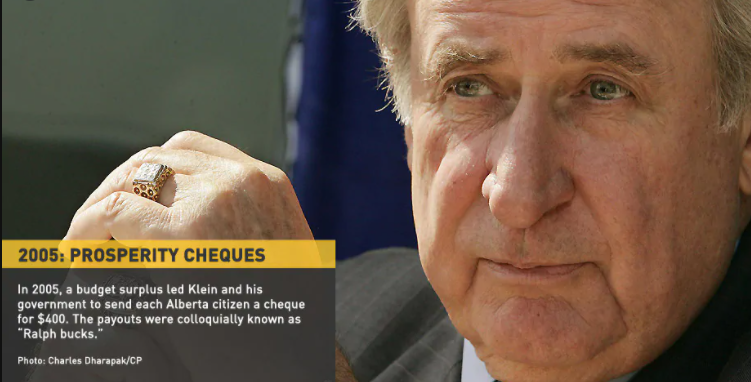
The term appears five times in the 2019 UCP platform, formed the core of the Alberta Chamber of Commerce's "Vote Prosperity" campaign in 2019, and was in the title of the Fraser Institute's 2019 election primer ("Alberta Prosperity: A Plan for Opportunity and Growth"). 

In the end, among other values, Alberta conservatism espouses "prosperity first," in that social justice must be preceded by provincial wealth. Progressives view the priorities and causality in the opposite order. 
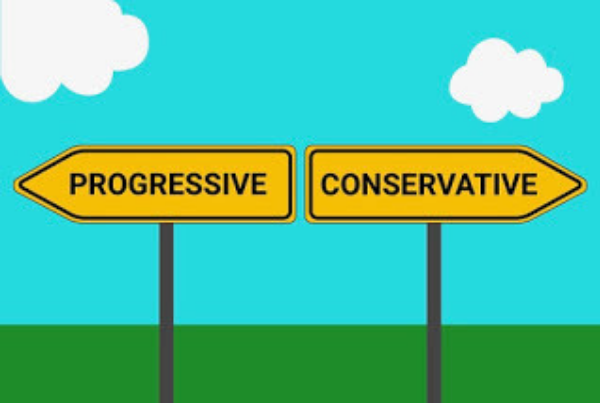
This said, the term "prosperity" is so embedded in Alberta's political culture that progressives have invoked it from time to time. Sometimes with notable success. The 2015 Notley campaign was explicit in its focus on "shared prosperity," for example. 
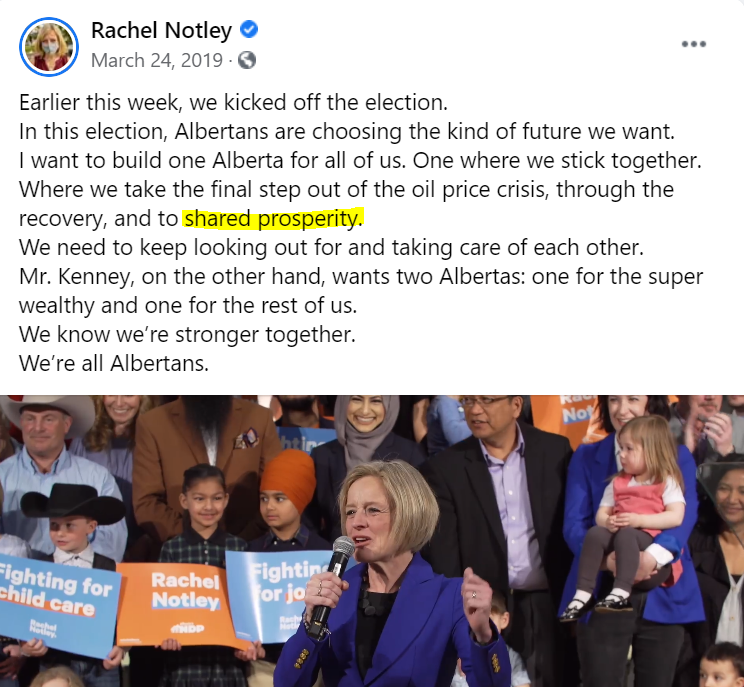
The concept of "shared prosperity" is not foreign to Alberta conservatives, of course. It's used quite often to describe the province's contributions to Confederation. 
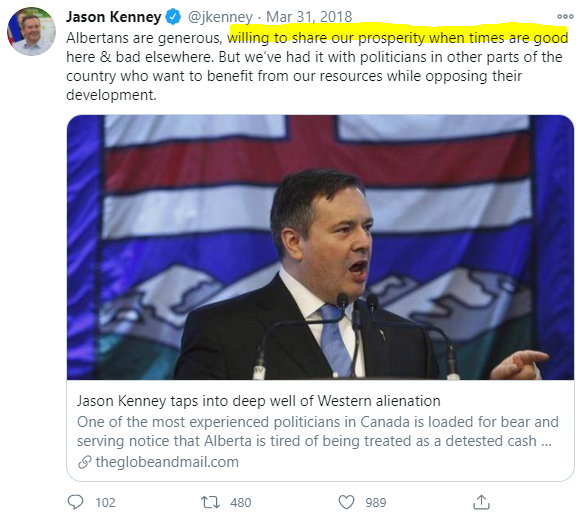
As with any element of political culture, media plays an important role in embedding the concept of "prosperity" in the public psyche. 



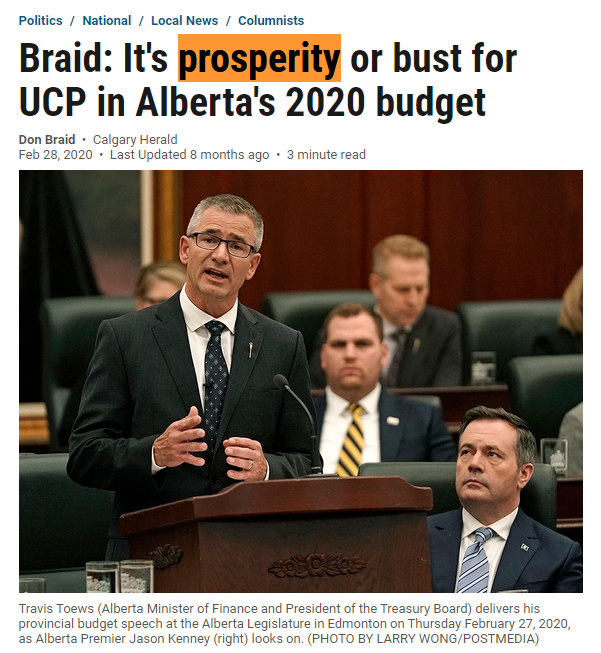

@threadreaderapp unroll
• • •
Missing some Tweet in this thread? You can try to
force a refresh


